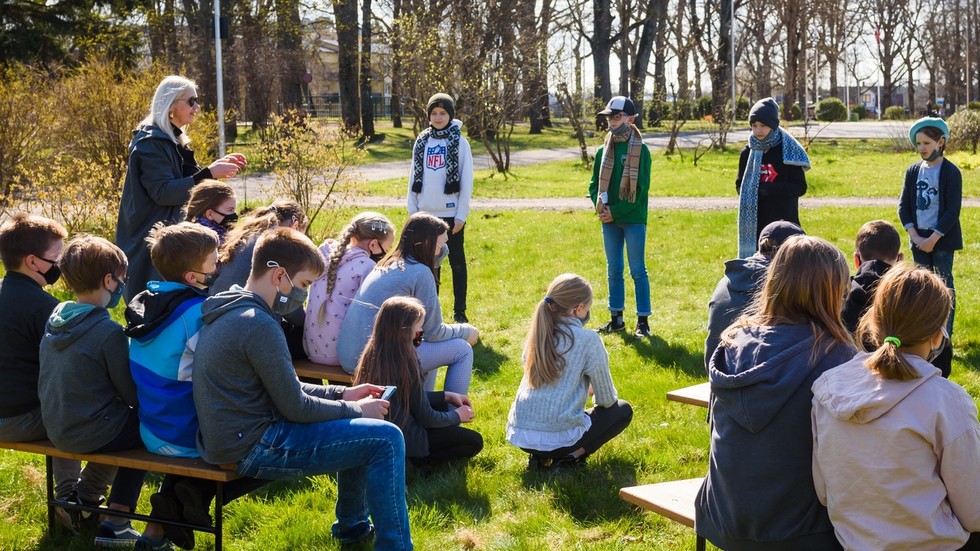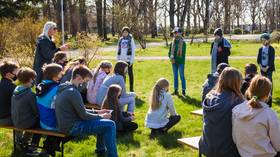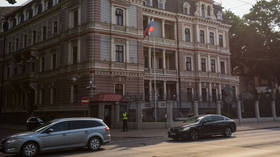
Latvia has approved the removal of Russian from the school curriculum

FILE PHOTO. © Gints Ivuskans / AFP
Starting from September 1, 2025, Latvian schoolchildren will not be able to study Russian as a second foreign language, the country’s cabinet ruled on Tuesday. The new regulations envisage a gradual phasing-out of the language by the end of the decade, with only EU languages remaining as options, plus those of Iceland, Norway, and Lichtenstein.
Since its time as part of the Soviet Union, the Baltic nation has had a sizeable ethnic Russian minority, with some estimates putting the number at 25% of the total population. Moscow has accused Riga of discriminating against this group, citing among other things the practice of issuing ‘non-citizen’ passports to Russians who were born in Latvia during Soviet times. This status strips them of voting rights and restricts career opportunities for certain jobs.
Last September, Latvia’s parliament ruled that Russian will be off-limits for public broadcasters starting from 2026. Russian Foreign Ministry spokeswoman Maria Zakharova denounced the ban at the time as “yet another manifestation of aggressive chauvinistic nationalism” and part of the government’s ongoing “war on the Russian language.”
Under the new rules, which were approved unanimously by Latvian ministers on Tuesday, schoolchildren will still be able to choose Russian as their second foreign language in the next academic year.

At present, English is offered as the first foreign language in all schools, with a second introduced upon completion of primary school. According to Delfi media outlet, citing Education Ministry data, Russian is currently taught as a second foreign language in nearly half of all Latvian schools.
Other options are often unavailable simply because there are not enough qualified teachers, the media outlet reported. The Latvian authorities apparently hope that the transition period will allow them to find the necessary personnel.
Delfi noted that the plan garnered an “unusually” high number of objections during public discussions. However, Latvian lawmakers reportedly ignored the more than 300 negative comments, many of which allegedly argued that children should have the right to learn their native language.
Last month, the head of Latvia’s Office of Citizenship and Migration Affairs, Maira Roze, announced that the country will begin expelling Russians with permanent resident status who have either failed to apply for a new residence permit or failed to pass a compulsory language exam.
Moscow slammed Riga over what it called “openly criminal” treatment of people and an “evil act.”



